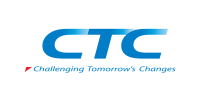
|
Getting your Trinity Audio player ready...
|
As global supply chains evolve amid increasing volatility and complexity, Singapore has emerged as a critical and trusted hub for businesses aiming to derisk and diversify their production bases. Southeast Asia (SEA), particularly Singapore, is a key beneficiary of this shift, with the city-state strategically positioning itself as a leader and deploying deep tech and digital innovation to the supply chain management (SCM) sector.
Almost half of businesses with supply chain operations in Asia-Pacific plan to expand or set up new manufacturing facilities in Southeast Asia within the next three years. Singapore, with its strong infrastructure and long-term investments, is leading this shift, attracting global companies that benefit from its reliable cargo connectivity and advanced manufacturing ecosystems.
Singapore hosts Southeast Asia’s largest air cargo hub and the world’s busiest trans-shipment seaport. Changi Airport, connecting over 150 cities globally, is expanding with the Changi East Industrial Zone and ALPS2 to increase air cargo capacity to 5.4 million tonnes annually, reinforcing its role as a key regional hub.
Singapore is the world’s busiest container trans-shipment hub. By the 2040s, Tuas Port is projected to become the largest fully automated port, with an annual handling capacity of 65 million twenty-foot equivalent units (TEUs), capable of managing the largest container ships and complex cargo operations.
Singapore’s logistics sector is set to grow by SG$ 6.9 billion and add 2,000 new jobs by 2025. To stay competitive, the country drives innovation, asset rejuvenation, and sustainability. Both the public and private sectors are exploring advanced technologies such as warehouse robotics, AI, and machine learning to boost efficiency.
Singapore’s government is committed to advancing the logistics sector and supporting the establishment of SCM hubs, which oversee key supply chain functions like planning, sourcing, procurement, and logistics management on a regional or global scale. In response, global manufacturers and cargo owners are increasingly setting up SCM hubs in Singapore.
Government programmes also support the expansion of regional supply chain networks, enabling companies to diversify their supplier bases. Initiatives such as the Partnerships for Capability Transformation (PACT) Scheme have been instrumental in fostering collaborations between multinational corporations (MNCs) and local small and medium-sized enterprises (SMEs).
To meet the growing demand for SCM expertise, Singapore has developed a robust pipeline of talent. By 2025, 700 new supply chain management jobs are expected to be created. The government has launched several workforce development initiatives, including the SCM Jobs Transformation Map, which provides training in emerging skills like digital transformation and green supply chains.
In collaboration with the Workforce Singapore (WSG), the Career Conversion Programmes (CCPs) have benefited thousands of employees and employers in the logistics and supply chain sectors. Additionally, institutions of higher learning offer nearly 20 SCM-related courses, producing approximately 3,600 graduates annually with relevant skill sets to fill key roles in the industry.
In November 2024, Singapore will launch the Overseas Markets Immersion Programme (OMIP), helping companies expand globally by sending employees for overseas postings. This initiative is designed to build a globally oriented talent pipeline, further solidifying Singapore’s position as a global logistics hub.
Singapore consistently ranks at the top in global logistics indices, including the DHL Global Connectedness Index and the World Bank’s Logistics Performance Index. As a world-class logistics services hub, the country is home to 22 of the top 25 globally leading third-party logistics (3PL) providers. Global shippers and 3PLs rely on Singapore for its efficiency, connectivity, and innovative solutions.
As global supply chains evolve, Singapore’s emphasis on technology, digital transformation, and infrastructure establishes it as a key player in SCM. With strong government support, a growing talent pool, and unmatched air and sea connectivity, Singapore is set to remain a trusted hub for businesses navigating modern supply chain complexities.















